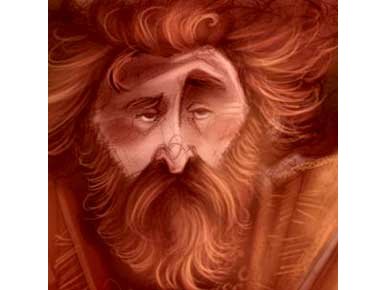Andrew Fountain - Don't Choose the Stew (Hebrews pt.11)
- Artist: Andrew Fountain
- Title: Don't Choose the Stew (Hebrews pt.11)
- Album: Newlife Church, Toronto
- Track: 11
- Genre: Hebrews
- Year: 2017-04-09
- Length: 27:23 minutes (11.04 MB)
- Format: MP3 Stereo 44kHz 56Kbps (VBR)
Link to Video:
Don't Choose the Stew (Hebrews pt.11) - See the whole Hebrews Series

Sermon notes - Don’t Choose the Stew (Hebrews pt.11)
- Where we are in Hebrews
- He starts off telling them to persue peace and holiness —he’ll define what that means a little later
- “Pursue peace with everyone” —not just other Christians
- This doesn’t mean you stay quiet when they are doing wrong
- In China—Christians getting a good reputation as productive workers
- What about a certain church in Florida where the leader burned a Koran? —how do you think they are understanding this text?
- There’s a lot of confusion about what the word “holiness” means, particularly in Christian songs
- “come short of the grace of God”
- This is a strange way of putting it. What if I said:
- “I have a completely free and undeserved gift for you, make sure you measure up to it!”
- How can you fail to get the gift? (don’t take it, probably because you don’t value it)
- This must be the meaning because of the example of Esau he gives in a moment
- Bitter root springing up (will come back to this)
- Esau: tell the story...
- Note it is not saying he tried to replent and failed
- He values a bowl of soup more than all of God’s promises!
- A gift that his grandfather Abraham had lived his life for.
- This is pornographic!
- Why? —fleshly craving, short term desires valued more than God’s amazing gift of Jesus
- This is what falling short of God’s grace is
- He is described as “immoral” (lit pornos) and “unholy” (lit profane)
- profane: treat holy as worthless
- the ultimate picture of no-faith. anti-faith
- Summary of today’s message: “don’t choose the stew!
- He is the opposite to Moses, who saw all the sensual pleasures of Egypt
- We are tempted to this
- So were they—they could have no persecution and a comfortable life for a few years
- The trouble is that you can see, taste, smell the delicous stew
- But Jesus is invisible
- Back to 2. Bitter root springing up previous slide
- He is quoting from the Greek translation of Deuteronomy 29:16–19
- click on link
- Like the parable of wheat and the tares
- The root brings a bitter or poisonous fruit
- Story of Elisha and the cooking pot
- The whole harvest is ruined, contaminated
- This is not talking about the Christian who is falling into sin
- It is talking about someone who is living a double life, pretending to follow God, but really following the “detestable things”
- He or she thinks that they are safe because they are with God’s people
- They are a danger because they poison our minds
- So what actually is the poison here in this text (as opposed to Deut)
- How does this relate to Esau?
- It is choosing short term comforts and physical pleasure over following God
- e.g. Materialism or sensual pleasure are like a disease
- not lose our salvation, but be damaged!
- We all affect one another a lot. Sin is like that.
- In my youth group growing up
- There were some who truly wanted to follow the Lord
- But a few (who turned out not to be Christians) were constantly pulling the group towards
- clothes, and cars, and alcohol, and status
- It had the effect of stopping the group from being as wholly devoted to God as it could be
- But the person themselves feels safe because they are part of the group
- Like someone who is an active part of a church
- Somehow they think that this will give them security
- We now move on to a comparison between worship now and worship in the O.T.
- Explain story…
- That is what coming into God’s presence without Jesus is like
- Note that these images are all to do with the senses.
- Which senses are involved?
- touch, smell, sight, sound
- How would you contrast these two?
- visible vs invisible
- terrifying vs joyful presence of God
- fear is replaced by feasting
- These are not directly perceived by our senses, but by faith
- Which do you want?
- Why would anyone chose the first?
- We have to see the value of what we have!!!
- Final question: Are you an Esau?
- You value the visible more than the invisible
- am I better off chosing the stew, because at least it’s something, and maybe the promises are all empty.
- That is a poison!
- Are you coming short of all you could have of God’s grace, simply because you are not taking the gift
- Not visible
- e.g. “The person you gave it to has forgotten it...”
- If you are not a Christian, the gift is offered. Don’t be like Esau who didn’t value it
- We are human, have bodies of flesh, and the stew is calling out to us. It smells so good.
- Pray for our faith to be strengthened now.
Updated on 2017-04-09 by Andrew Fountain
- Download audio file
- 69 downloads
- 3 plays




